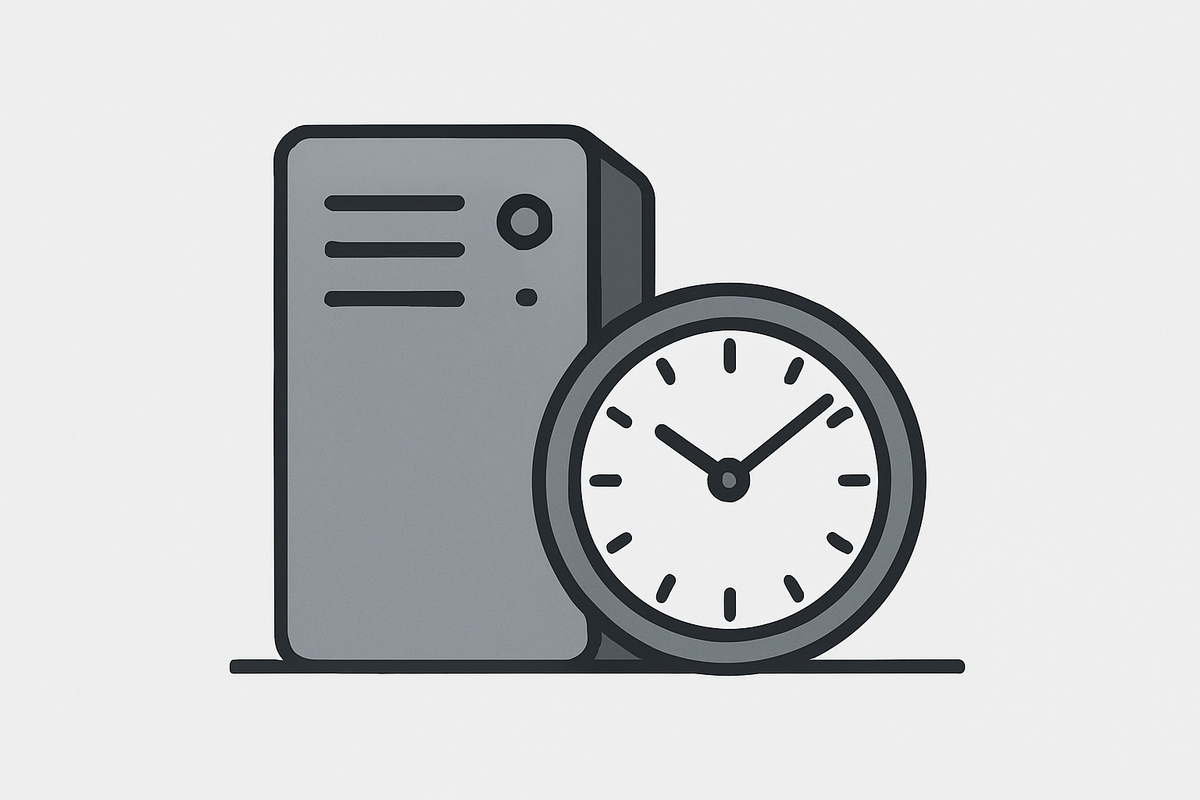Why Website Uptime Matters for Your Business

Imagine this: you’re running an online store, and someone is ready to buy. They’ve added a product to their cart, reached for their credit card, and click “Checkout”… only to see an error message. Your website is down. The sale is gone. The trust is shaken. And that visitor may never come back.
That’s the reality of website uptime — or more specifically, downtime. In the physical world, if your shop’s door is locked during business hours, people walk away. Online, the same thing happens, but the stakes are even higher because visitors expect websites to be available 24/7.
Let’s explore why uptime is so important, how it impacts your business, and what you can do to make sure your site is always there when people need it.
What Uptime Really Means
In simple terms, uptime is the percentage of time your website is available online and accessible to visitors. Hosting providers often advertise numbers like 99.9% uptime, which sounds close to perfect. But let’s break that down.
- 99% uptime = about 7 hours of downtime per month.
- 99.9% uptime = about 40 minutes of downtime per month.
- 99.99% uptime = about 4 minutes of downtime per month.
Those differences may not sound huge, but if your site is down during peak hours or while running an ad campaign, even a few minutes can mean lost sales, missed leads, and a hit to your reputation.
The Real Cost of Downtime
Downtime isn’t just an inconvenience — it’s expensive.
- Lost revenue: If you’re selling products or services, every minute offline is a missed opportunity.
- Damaged trust: Visitors expect reliability. If they see errors, they may wonder if your business is professional or trustworthy.
- SEO impact: Search engines don’t like unreliable websites. Frequent downtime can hurt your rankings, meaning fewer people even find you in the first place.
- Frustration: Loyal readers or customers can get frustrated and drift toward competitors.
For small businesses especially, where every visitor counts, uptime is the quiet hero that keeps the doors open.
What Causes Downtime?
Understanding the causes helps you prevent them. Common culprits include:
- Poor hosting: Cheap hosting providers often overload their servers, making downtime more likely.
- Traffic spikes: If too many people visit at once and your server can’t handle it, the site can crash.
- Software errors: A bad plugin update or theme issue can break your site.
- Cyberattacks: DDoS attacks or other intrusions can force your site offline.
Some of these are unavoidable, but many can be minimized by making smart choices.
How to Protect Your Uptime
You can’t control everything, but you can take steps to make downtime rare:
- Choose a reliable host: Look for providers with strong uptime guarantees (99.9% or higher). Premium hosts like SiteGround, Kinsta, or Cloudways invest heavily in infrastructure to keep sites online.
- Use monitoring tools: Services like UptimeRobot or Pingdom alert you if your site goes down so you can react quickly.
- Keep things updated: Outdated plugins or themes are common causes of downtime. Regular updates reduce risks.
- Add redundancy: Using a Content Delivery Network (CDN) like Cloudflare adds an extra layer of reliability.
These aren’t complicated steps, but together they make a massive difference.
The Human Side of Uptime
It’s easy to get caught up in numbers and percentages, but uptime is really about your relationship with your audience. When someone clicks on your site, they’re giving you a chance. If you’re not there, they may not give you a second one.
Consistency builds trust. Just as you expect your favorite café to be open when you show up, your visitors expect your website to be ready when they arrive. That reliability, quiet as it is, can set your business apart from competitors.
Uptime might not be the most glamorous part of running a website, but it’s one of the most important. It determines whether visitors can actually see the work you’ve poured into your content, products, and services.
- High uptime means trust, consistency, and opportunities.
- Downtime means frustration, lost revenue, and damaged reputation.
The choice often comes down to the quality of your hosting and how proactive you are with monitoring and updates.
So if you’ve never thought much about uptime before, take a moment to check your host’s track record. Your business deserves to be open for visitors every hour of every day — because every second counts.